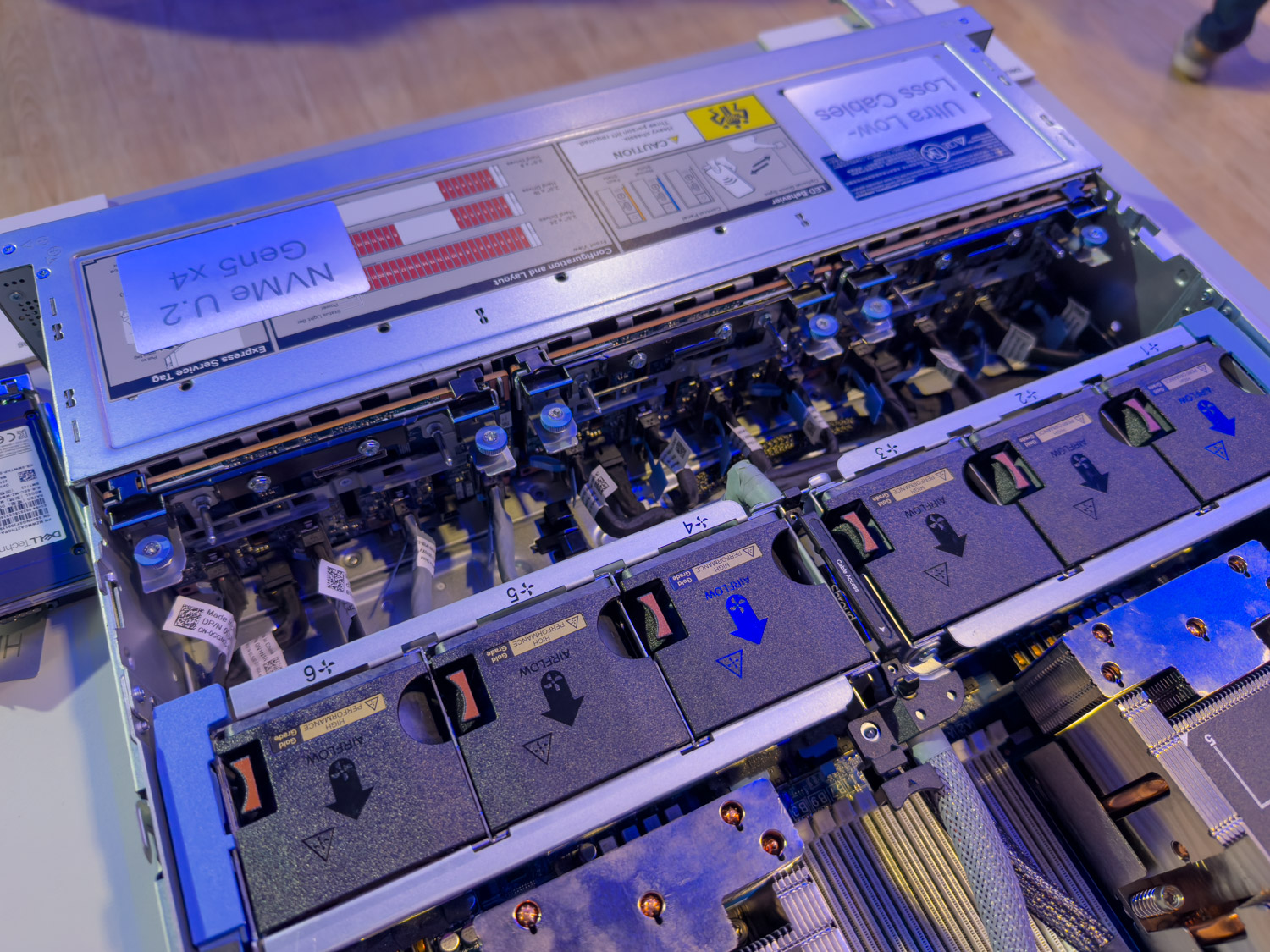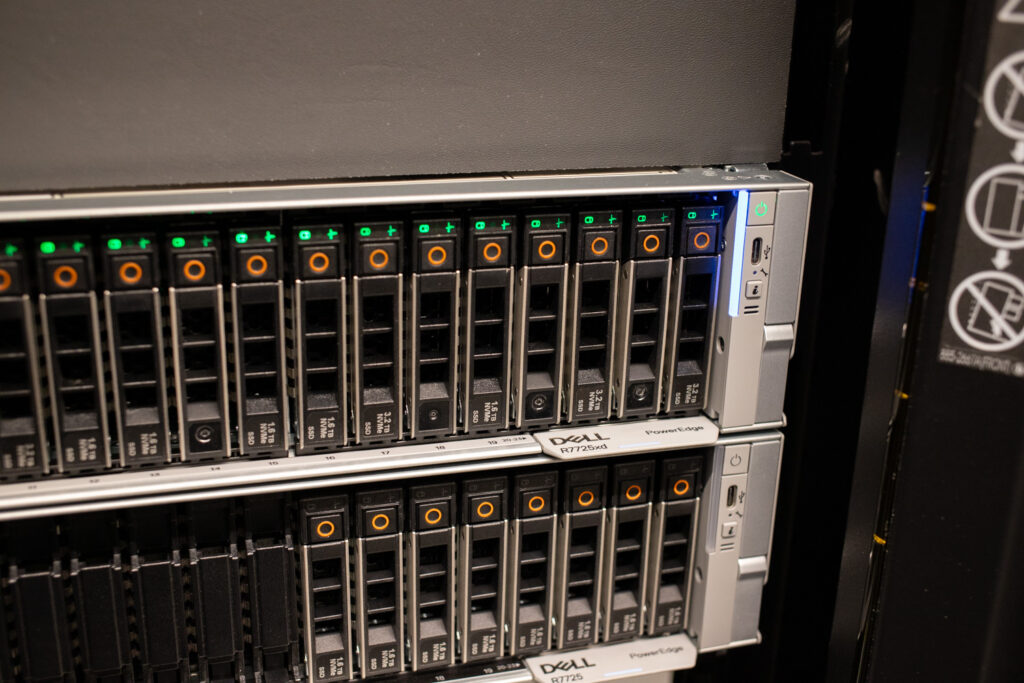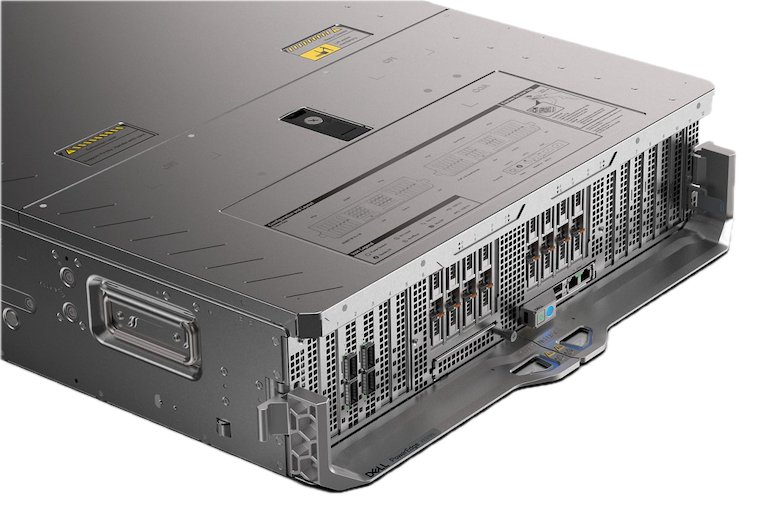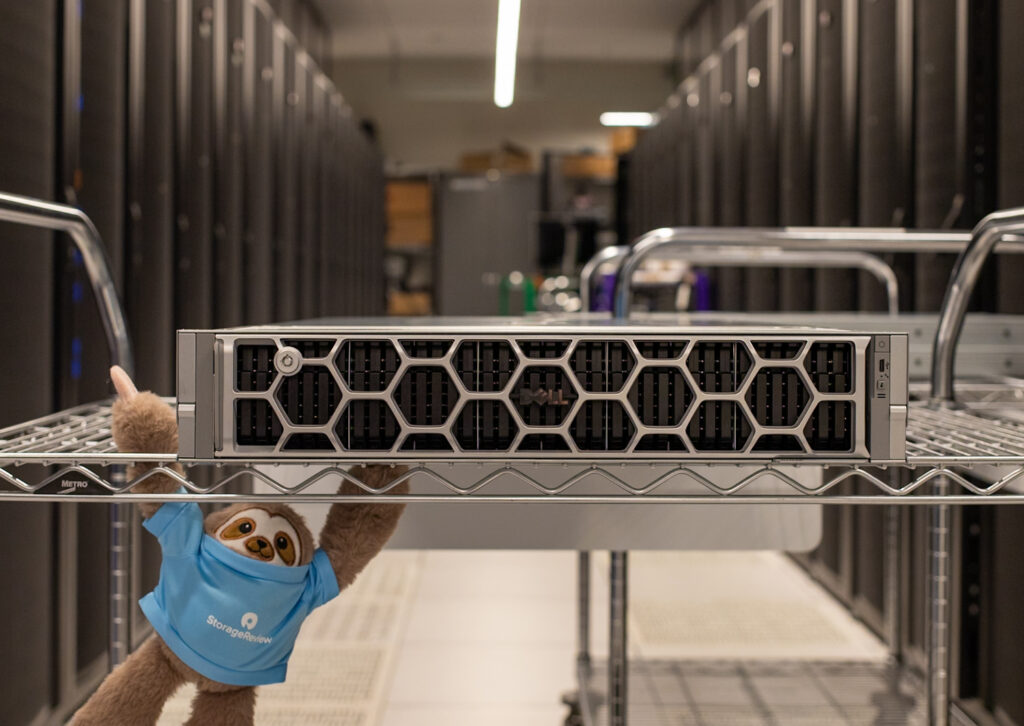Dell Technologies has announced a series of enhancements to the Dell AI Factory to simplify and accelerate the enterprise AI journey. The expanded offerings focus on enhancing performance and automation for AI tasks while addressing common challenges through integrated, reliable on-premises infrastructure that provides greater control and more predictable operations.
This timing aligns with a noticeable shift in the market. Over the next 24 months, 85 percent of enterprises plan to move AI on-premises rather than rely mainly on public cloud services. According to a recent Dell Chief Strategy Office (CSO) AI adoption survey, 77 percent of organizations pursuing AI are actively looking for a single vendor to support them from start to finish. Dell is positioning the AI Factory to meet this demand, using what it claims is the industry’s widest end-to-end AI portfolio to ease adoption and deliver concrete, measurable results.
Simplified and Automated AI Journey
The Dell Automation Platform has been enhanced to work directly with the Dell AI Factory, creating a more intelligent and automated experience for deploying AI infrastructure and tasks. Instead of expecting customers to build custom architectures, Dell is focusing on validated and optimized solution designs delivered within a secure framework. This method aims to standardize deployments, ensure consistent outcomes, and significantly reduce the uncertainty that often comes with AI infrastructure design.

As part of this expansion, Dell is automating the integration of software-driven tools that are becoming increasingly important in modern AI workflows. The AI code assistant Tabnine and the agentic AI platform Cohere North are now integrated into the Dell AI Factory, allowing AI workloads to move from experimentation to production more quickly. By improving integration across the system, these tools help streamline operations, enhance scalability, and lessen friction between development teams and infrastructure teams.
Services play a crucial role in Dell’s simplification strategy. Dell Professional Services is offering complete, interactive AI pilot projects based on real customer data. These pilots are structured engagements that demonstrate business value before larger investments are made. They are led by experts, include clear success metrics and KPIs, and aim to show measurable ROI. For technical sales teams and IT leaders, these pilots minimize risks by illustrating what the AI Factory can deliver in a customer’s specific environment and data context.
Enhanced Data Management with PowerScale and ObjectScale
Data management remains a key differentiator between organizations that excel in AI and those that struggle to operationalize it. Dell has updated PowerScale and ObjectScale, the storage engines of the Dell AI Data Platform, to enhance performance, scalability, and data discovery capabilities.

Dell PowerScale will soon be available as standalone software on select Dell PowerEdge servers, like the PowerEdge R7725xd. This software-defined approach follows Dell’s recent announcement of Dell ObjectScale. Together, these new configurations provide organizations, including cloud service providers, with more flexibility to enhance AI performance while enabling them to adopt the latest server and networking technologies. Instead of being restricted to fixed storage appliances, customers can pair PowerScale and ObjectScale with their chosen hardware lifecycle and platform strategy.
On the protocol side, Dell PowerScale is adding support for parallel NFS (pNFS) with Flexible File Layout (FFL). This feature enables two-way communication between metadata servers and clients, improving the efficiency of parallel data distribution across multiple nodes in a PowerScale cluster. The outcome is higher combined throughput, improved performance, and near-linear scalability through parallel I/O across multiple paths. For AI training, simulation, and large-scale inference tasks that require high I/O, this increased parallelism is designed to provide the massive scalability and bandwidth needed to keep GPUs and accelerators fully utilized.
In addition, Dell ObjectScale AI-Optimized Search introduces two complementary AI-powered search features (S3 Tables and S3 Vector) designed explicitly for ObjectScale’s S3 storage. These specialized APIs provide direct, fast access to complex data stored on ObjectScale, supporting analytics and core AI workloads such as inference and retrieval-augmented generation (RAG). By enabling faster and more accurate searches across growing unstructured datasets, AI-Optimized Search aims to shorten decision-making cycles and simplify how organizations store, retrieve, and analyze data at scale.
PowerEdge Innovations for AI and HPC
On the compute side, Dell PowerEdge servers remain essential to enterprise AI infrastructure, enabling faster training, distributed inference, and shorter time to insights, along with cooling options that align with various data center strategies.

The Dell PowerEdge XE9785 and XE9785L are designed for next-generation AI and HPC workloads. The XE9785 is an air-cooled 10U platform, while the XE9785L is a 3U system made for direct liquid cooling (DLC). Both configurations feature dual-socket AMD EPYC processors and eight AMD Instinct MI355X GPUs per node. Combined with AMD Pensando Pollara 400 AI NICs and the Dell PowerSwitch AI fabric, these platforms are built to deliver high overall compute throughput, predictable multi-node scaling, and improved total cost of ownership. By merging dense GPU resources with optimized networking and flexible cooling, the XE9785 family aims at customers building large AI clusters who need to balance performance, power, and operating costs.

Dell PowerEdge R770AP
The new Dell PowerEdge R770AP is designed for workloads that require high parallelism, low latency, and extensive I/O capabilities, such as real-time analytics and trading platforms. This air-cooled system is powered by Intel Xeon 6 P-core 6900-series processors, which provide high core counts, large cache sizes, and support for CXL memory expansion. A generous number of PCIe lanes allows for dense network, accelerator, and storage connections. In practice, this means faster trading algorithms, flexible memory scaling, and better network performance in environments where microseconds and throughput directly affect business results.

Kevin with Intel Xeon 6 P-core 6900-Series Processor
Advanced Networking for AI at Scale
Networking often poses a challenge for scaling AI, especially as deployments grow to tens of thousands of accelerators. Dell is expanding its open networking portfolio to accelerate AI fabric deployments and simplify operations in large-scale environments.
The Dell PowerSwitch Z9964F-ON and Z9964FL-ON, equipped with Broadcom Tomahawk-6 silicon, offer up to 102.4 terabits per second of switching capacity, featuring multiple rate options. These platforms are designed to support large AI clusters and HPC data centers, including air-cooled and DLC environments with over 100,000 accelerator chips. The aim is to provide sufficient bandwidth and port density to keep GPU clusters fully utilized while maintaining reliable performance and low node-to-node latency.
These switches are paired with Dell Technologies’ Enterprise SONiC Distribution and SmartFabric Manager for SONiC. Customers can embrace open, large-scale networking with enterprise-level support, facilitating the establishment of extensive AI fabrics while simplifying deployment, management, and monitoring. Enterprise SONiC provides operators with a standardized, multi-vendor network OS option, while SmartFabric Manager significantly reduces the complexity involved in fabric setup and ongoing operations.
SmartFabric Manager now also includes integration with the Dell AI Factory. This integration provides automated “blueprints” for AI infrastructure, enabling faster, error-free deployments with minimal manual effort. The platform now automates deployment for Dell PowerScale storage solutions, reducing configuration time and ensuring storage and networking are aligned from the start. Additionally, SmartFabric Manager introduces rack-scale integration with OpenManage Enterprise (OME), providing operators with complete visibility into GPU infrastructure, from compute and storage to fabric. This high level of integration aims to accelerate troubleshooting, minimize operational overhead, and maintain clusters at optimal performance.
Integrated, Reliable Infrastructure for Greater Control
Recognizing that the success of AI infrastructure relies on more than just compute and storage, Dell is updating its Integrated Rack Scalable Solutions (IRSS) program to deliver more reliable and intelligent infrastructure for large-scale AI deployments. These improvements aim to ensure higher availability, better thermal management, and smoother scaling in dense environments.
OpenManage Enterprise now offers unified management of both individual servers and rack-scale environments. It combines compute, power, and cooling management in one console and can automate operations across up to 25,000 devices. Built-in leak detection and automated responses are intended to protect uptime in liquid-cooled environments and reduce operational risks as densities increase.
The Integrated Rack Controller (IRC) enhances this with a comprehensive hardware and software system that provides deep visibility at the rack level. It integrates closely with OpenManage Enterprise and the Integrated Dell Remote Access Controller (iDRAC), enabling quick and automated leak detection, as well as coordinated responses within the rack. This level of integration is designed to shorten incident resolution times, limit the impact of failures, and minimize overall downtime.
On the cooling front, the Dell PowerCool Rack-mount Coolant Distribution Unit (RCDU) is a compact 4U liquid-cooling solution that supports rack densities up to 150 kW. It works with both 19-inch Dell IR5000 racks and OCP standards-based 21-inch Dell IR7000 racks. The RCDU connects to OpenManage Enterprise for centralized cooling management, allowing administrators to treat cooling as a critical, visible resource. When paired with Dell ProSupport, the solution includes preventive maintenance and proactive monitoring to ensure optimal performance and reliable system support as AI deployments grow.
Arthur Lewis, president of Dell Technologies’ Infrastructure Solutions Group, highlights a common theme in enterprise AI: organizations want to run AI on their own infrastructure for control and predictability, but many face challenges due to architectural and operational complexities. He believes the Dell AI Factory directly addresses this issue by combining integrated automation, performance optimization, and robust design. In practice, this means delivering a platform that simplifies AI deployment at scale, ensures consistent results, and achieves real returns without the need for constant reinvention of the underlying infrastructure.
Availability
- Dell AI workload blueprints are now available in tech preview.
- Dell Services AI use-case pilots are now globally available.
- Dell PowerEdge XE9785 will be available globally in December.
- The Dell PowerEdge XE9785L is now globally available.
- Dell PowerEdge R770AP will be globally available in December.
- Software-defined PowerScale will be globally available in 1H26.
- Dell PowerScale parallel NFS support will be globally available in 2026.
- Dell ObjectScale AI-Optimized Search will be globally available beginning 2H26.
- Dell PowerSwitch Z9964F-ON and Z9964FL-ON will be globally available in 2H26.
- Enterprise SONiC Distribution by Dell Technologies PowerSwitch support will be globally available in 1H26.
- Dell SmartFabric Manager will be globally available in 1H26.
- Updates to Dell’s ecosystem enablers for AI PCs are now globally available.
- Updates to OpenManage Enterprise will be globally available in January 2026.
- Dell Integrated Rack Controller will be globally available this month.
- Dell PowerCool RCDU will be globally available in 1H26.




 Amazon
Amazon